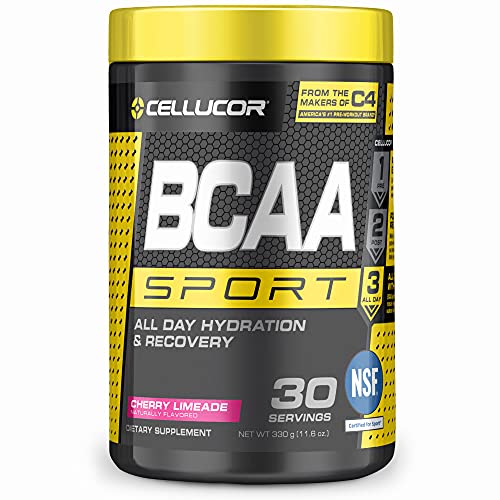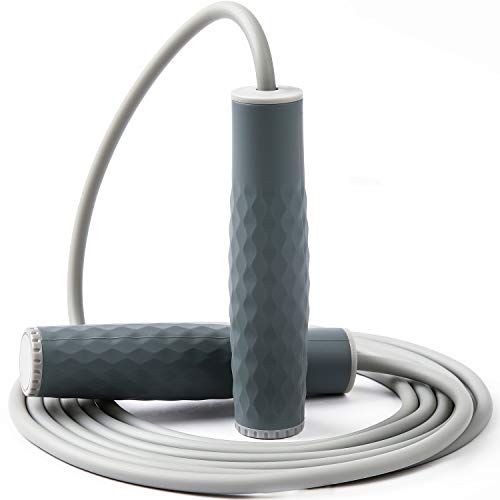The Best Diet for Sports Injury Recovery and Rehabilitation
Hina Maris Apr 23, 2024 11:37 AM
When you’re injured, all you can think about is how to get back on the field as soon as possible. You want to heal fast and be ready to go again. Let’s face it – there’s no worse feeling than sitting on the bench when your teammates are playing. The good news is that sports injury recovery and rehabilitation can be faster with the right diet and nutrition. There are certain nutrients that are imperative for a speedy recovery from an injury, especially if you’re an athlete or someone who regularly exercises. Luckily, these foods have been shown to help you heal more quickly and prevent future injuries by strengthening your tissues and reducing inflammation. Sports nutrition is becoming increasingly important for anyone who plays at a competitive level or simply wants to stay fit, so here’s our list of the best diets for sports injury recovery.
Compare Products
NF Sports Beta Alanine Muscle Recovery Powder, Reduces Muscle Fatique, Dietary Supplement, Unflavored Protein Powder No Artificial Sweeteners, Promotes Muscle Carnosine Levels (320g, 100 Servings)
View on Amazon- SCORE9.6EFR Score
EFRScore is a ranking system developed by our team of experts. It from 0 to 10 are automatically scored by our EFR tool based upon the data collected. This score has no relationship or impact from any manufacturer or sales agent websites. Learn more
- BrandNF Sports
SaltStick Caps, Electrolyte Supplement Capsules for Rehydration, Exercise, Hiking & Sports Recovery, Gluten Free, Non-GMO, 100 Capsules
View on Amazon- SCORE9.4EFR Score
EFRScore is a ranking system developed by our team of experts. It from 0 to 10 are automatically scored by our EFR tool based upon the data collected. This score has no relationship or impact from any manufacturer or sales agent websites. Learn more
- BrandSaltStick
- Prime
Klean Athlete Klean-D | 5000 IU of Vitamin D3 to Support Immune Health, Muscle Recovery, Calcium Absorption, and Bone Strength | NSF Certified for Sport | 100 Tablets
View on Amazon- SCORE9.4EFR Score
EFRScore is a ranking system developed by our team of experts. It from 0 to 10 are automatically scored by our EFR tool based upon the data collected. This score has no relationship or impact from any manufacturer or sales agent websites. Learn more
- BrandKlean ATHLETE
- Prime
NOW Sports Nutrition, ZMA (Zinc, Magnesium and Vitamin B-6), Enhanced Absorption, Sports Recovery*, 180 Capsules
View on Amazon- SCORE9.2EFR Score
EFRScore is a ranking system developed by our team of experts. It from 0 to 10 are automatically scored by our EFR tool based upon the data collected. This score has no relationship or impact from any manufacturer or sales agent websites. Learn more
- BrandNOW
- Prime
Cellucor BCAA Sport, BCAA Powder Sports Drink for Hydration & Recovery, Cherry Limeade, 30 Servings
View on Amazon- SCORE9.2EFR Score
EFRScore is a ranking system developed by our team of experts. It from 0 to 10 are automatically scored by our EFR tool based upon the data collected. This score has no relationship or impact from any manufacturer or sales agent websites. Learn more
- BrandCellucor
- Prime
MEND Regenerate, Post Workout Muscle Recovery, Immune Support, and Sports Nutrition Supplement for Men and Women - Natural, Gluten Free, and Non-GMO - Cocoa Protein Powder, 20 Servings
View on Amazon- SCORE9.2EFR Score
EFRScore is a ranking system developed by our team of experts. It from 0 to 10 are automatically scored by our EFR tool based upon the data collected. This score has no relationship or impact from any manufacturer or sales agent websites. Learn more
- BrandMEND
- Prime
Muscle Recovery | MuscleTech Clear Muscle Post Workout Recovery | Muscle Builder for Men & Women | HMB Supplements | Sports Nutrition Post Workout Recovery & Muscle Building Supplements, 42 ct
View on Amazon- SCORE9.0EFR Score
EFRScore is a ranking system developed by our team of experts. It from 0 to 10 are automatically scored by our EFR tool based upon the data collected. This score has no relationship or impact from any manufacturer or sales agent websites. Learn more
- BrandMuscleTech
- Prime
NOW Sports Nutrition, ZMA (Zinc, Magnesium and Vitamin B-6), Enhanced Absorption, Sports Recovery*, 90 Capsules
View on Amazon- SCORE9.0EFR Score
EFRScore is a ranking system developed by our team of experts. It from 0 to 10 are automatically scored by our EFR tool based upon the data collected. This score has no relationship or impact from any manufacturer or sales agent websites. Learn more
- BrandNOW
- Prime
SKRATCH LABS Post Workout Recovery Drink Mix with Chocolate, (41.6 oz, 24 Servings) with Complete Milk Protein of Casein and Whey and Probiotics, Gluten Free, Kosher, Natural, Vegetarian
View on Amazon- SCORE9.6EFR Score
EFRScore is a ranking system developed by our team of experts. It from 0 to 10 are automatically scored by our EFR tool based upon the data collected. This score has no relationship or impact from any manufacturer or sales agent websites. Learn more
- BrandSkratch Labs
- Prime
XTEND Original BCAA Powder Watermelon Explosion - Sugar Free Post Workout Muscle Recovery Drink with Amino Acids - 7g BCAAs for Men & Women - 30 Servings
View on Amazon- SCORE9.2EFR Score
EFRScore is a ranking system developed by our team of experts. It from 0 to 10 are automatically scored by our EFR tool based upon the data collected. This score has no relationship or impact from any manufacturer or sales agent websites. Learn more
- BrandXtend
- Prime
Last update on 2024-04-23 / Affiliate links / Images, Product Titles, and Product Highlights from Amazon Product Advertising API
What to Eat During Sports Injury Rehabilitation
There are certain foods that have been shown to aid sports injury recovery and rehabilitation. As with every type of diet, it’s important to remember that no single food can heal you. It’s the combination of nutrients and foods that is most beneficial for your body. Some of the best foods for sports injury recovery and rehabilitation include:
Why Nutrition Is Important When Recovering from an Injury
When you’re injured, your muscles are under stress, which leads to inflammation. This is a good thing – it’s your body’s response when it senses a threat after an injury. Inflammation is meant to heal you, but it can also keep you from getting better by impairing your tissues’ ability to repair themselves. Your body needs the right nutrients to get through this process as quickly as possible and prevent future injuries. For example, vitamin C is essential for healing after an injury, while vitamin E helps with tissue repair by protecting your muscles. Protein is the building block of muscles and other tissues, while carbohydrates can help reduce inflammation. Different nutrients help repair and maintain different parts of your body, so it’s important to eat a balanced diet.
Foods That Help With Sports Injury Recovery and Rehabilitation
There are certain foods that have been shown to aid sports injury recovery and rehabilitation. As with every type of diet, it’s important to remember that no single food can heal you. It’s the combination of nutrients and foods that is most beneficial for your body. Some of the best foods for sports injury recovery and rehabilitation include:
Proteins for Faster Healing
Protein is the building block of your muscles and also helps with tissue repair. It’s also necessary for your immune system and metabolism, so it’s important to include it in every meal. Studies show that athletes who consume more protein have a lower risk of injury, so it makes sense that it’s helpful for healing as well. In fact, animal proteins, such as eggs and lean meats, are the best source of amino acids, the building blocks of protein. Plant proteins, like beans and legumes, are also a good source of amino acids, but they’re not as bioavailable as animal proteins. Some of the best sources of animal protein are eggs, fish, poultry, and red meat. If you have a dairy allergy or can’t consume animal proteins, you can get protein from plants, like beans, lentils, tofu, and seeds.
Carbohydrates for Quicker Recovery and Tissue Repair
Carbohydrates are the body’s preferred source of energy, so they’re especially important for athletes who train hard. They’re also essential for tissue repair, which is why they’re helpful when recovering from an injury. The best sources of carbohydrates are whole grains and beans and legumes. They’re also abundant in fruits, vegetables, nuts, and seeds. Carbohydrates can be found in just about everything, so it’s important to eat a variety of whole foods to ensure you’re getting all the nutrients you need.
Fats for Inflammation Reduction
You’ve probably heard that fats are bad for you, but that’s not necessarily true. Athletes need more healthy fats in their diet, especially omega-3 fatty acids, to help reduce inflammation. Omega-3 fatty acids are found in flaxseeds, walnuts, groundnuts, and fish oils and can help you recover faster after an injury. You can also find them in most types of whole grains and vegetables. Omega-3 fatty acids are also anti-inflammatory, which can help reduce swelling and pain after you’ve injured yourself. Other types of fats, like monounsaturated and polyunsaturated fats, can also help you recover faster since they’re anti-inflammatory as well. Some of the best sources of healthy fats are nuts, avocados, and olives.
Vitamin and Mineral Deficiencies That Delay Healing
Not getting enough of certain vitamins and minerals can cause a delay in your sports injury recovery and rehabilitation. For example, vitamin C is important for healing wounds and fighting off infections. If you don’t get enough of it, your wound might take longer to heal, or you might even get an infection. Vitamin C is abundant in citrus fruits, bell peppers, strawberries, kiwis, and broccoli. Vitamin A is also important for wound healing, as well as maintaining healthy eyes. Vitamin A deficiency can cause night blindness, which is why it’s important to get enough of it, especially if you play night games. Vitamin A is abundant in carrots, sweet potatoes, and spinach. Vitamin E is another crucial vitamin for sports injury recovery and rehabilitation. It helps repair muscles and maintains good joint health. Vitamin E deficiency can cause muscle weakness and even lead to paralysis. It’s abundant in almonds, sunflower seeds, spinach, and avocados.
Conclusion
The best diet for sports injury recovery and rehabilitation is the one that is rich in protein and whole grains, while also being low in fat and sugar. It’s also important to get enough vitamins and minerals to help with healing. A healthy diet can not only help you heal faster, but it can also keep you from getting injured in the first place. It’s important to remember that no single food can heal you – it’s the combination of nutrients and foods that is most beneficial for your body.

























